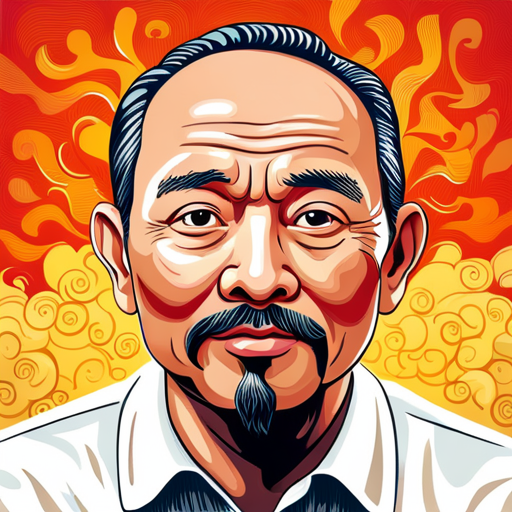Autobiography of Ho Chi Minh
Early Life
Hello, I am Ho Chi Minh, which means “He Who Enlightens”. But I wasn’t born with this name. I was born as Nguyá» n Sinh Cung on May 19, 1890, in a small village in central Vietnam called Kim Lien. My father, Nguyá» n Sinh Sắc, was a scholar who instilled in me a love for education and a sense of rebellion against the French colonial rulers of our country. From an early age, I was deeply aware of the injustices and exploitation suffered by my people.
Journey to the West
As a young man, I left my homeland to see the world and gain knowledge that could help my country. First, I found work as a cook on a French steamer. This job allowed me to visit many places, including America. Afterward, I moved to London and then to France, where I started to get involved in politics.
During my stay in France, I was exposed to the ideas of Karl Marx and Vladimir Lenin, which deeply resonated with me. I could see that the struggles faced by my people were part of a much larger battle against imperialism and capitalism. Thus, I adopted the pseudonym Nguyen Ai Quoc, which means “Nguyen the Patriot”, and dedicated myself to the cause of freeing my homeland from colonial rule.
Revolutionary Path
Upon returning to Vietnam, I started a series of political movements against French colonial rule. I was arrested and exiled several times, but I remained undeterred. During this time, I adopted various aliases to evade the French authorities, and one of these was Ho Chi Minh.
In 1930, I founded the Vietnamese Communist Party, which later became known as the Indochinese Communist Party. The goal of our party was to overthrow the French colonial rule and establish a communist government.
During World War II, when the Japanese occupied Vietnam, I saw an opportunity for revolution. I formed the Viet Minh, a national independence coalition, which played a pivotal role in the resistance against Japanese rule.
The Battle of Dien Bien Phu and the Birth of North Vietnam
Post-World War II, France attempted to reclaim its former colony, leading to the First Indochina War. The turning point of this war came in 1954 at the Battle of Dien Bien Phu. Under the leadership of General Vo Nguyen Giap, our forces defeated the French, marking a significant victory for our independence movement.
Following the victory, the Geneva Accords divided Vietnam into the communist North, led by me, and the non-communist South. My dream of a united, free Vietnam was only half-achieved.
The Vietnam War
The division of Vietnam led to the Vietnam War, a gruesome period that lasted from 1955 to 1975. Backed by the USSR and China, we, North Vietnam, fought against South Vietnam, which was supported by the United States. As a leader, I witnessed the extreme toll the war took on my people. It pained me, but I believed that our struggle was necessary for total liberation.
Later Life and Legacy
Sadly, I did not live to see the end of the war and the reunification of Vietnam. I passed away on September 2, 1969, six years before the Fall of Saigon.
Today, my mausoleum in Hanoi stands as a symbol of Vietnamese resistance, and I am remembered as a national hero who fought relentlessly for the independence and unification of Vietnam. Despite the controversies surrounding my political ideology and methods, I wish to be remembered not as a politician or a military leader, but as a patriot who loved his country and people above all else.
Ho Chi Minh Books and Audio Books on Amazon.
Show more +
